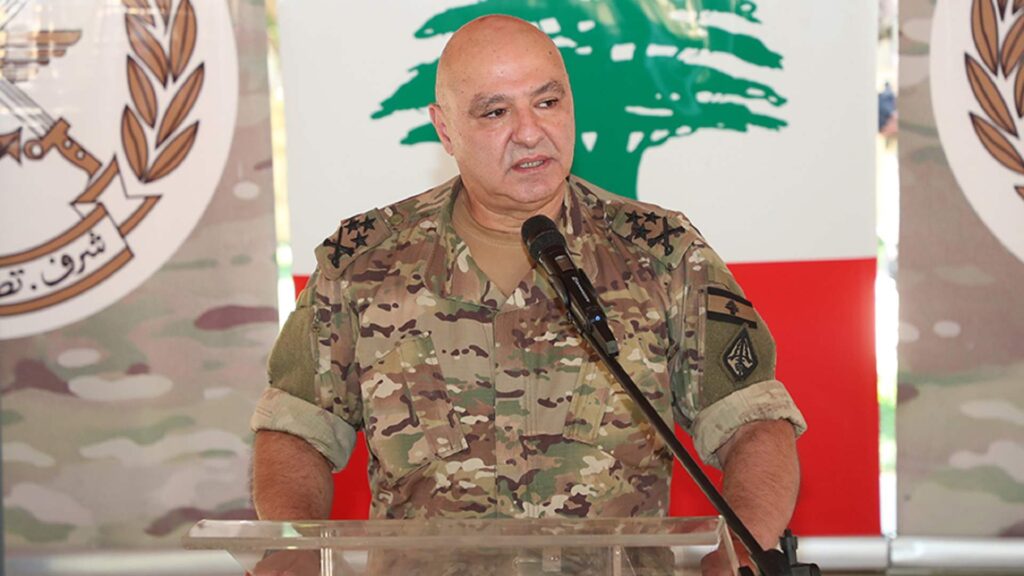On Thursday, Lebanon’s parliament will meet for a session dedicated to the election of a president. Shortly after the onset of the conditional ceasefire agreement, Speaker of Parliament Nabih Berri announced the session, providing political groups and members of parliament in Lebanon more than a month to discuss options.
Lebanon has been without a president for over two years since the stepdown of former president Michel Aoun in October 2022, making it the third consecutive presidential void that Lebanon has faced since 2007.
In a context mired with economic deterioration and the recent devastating Israeli war on the country, Lebanon continues to navigate its series of crises leaderless, at least symbolically, in a state of vacuum reflective of the degree of political disagreement between the country’s main actors.
A President on the Ninth?
There remains no definitive answer on whether Lebanon will have a president this month amid the political crisis that the country is facing.
“Today it is clear that the parliament, with its 128 members, is not the decision-maker,” explains Doctor of Law and Political Expert Ali Mourad. “Whether there are international agreements or amorphous discussions, the presidential file has a pivotal role”.
“This presidential vacancy was obviously one of the main reasons for the paralysis of the country[‘s institutions]. Electing a president today means putting an end to this intentionally produced state of paralysis.”
The state of paralysis was not limited to the election of a president per se, but it led to the entire parliament being unable to effectively meet, discuss and play its supervisory role of the government.
Multiple sessions meant for the election of a president failed in their objectives, with Mourad emphasizing that now it is a necessity to ensure the quorum of 86 members present for the session.
“The one responsible for the presidential vacuum of the past years were principally Hezbollah and its allies […] with the main goal being to rule by paralysis,” adds Mourad who explains that the same happened after the mandates of previous presidents Emile Lahhoud, Michel Sleiman and Michel Aoun albeit for different contextual reasons.
“The discussion on the names of the candidates themselves takes the spotlight away from the main idea that we should be tackling: What type of country do we need, what type of ruling class do we need, and subsequently what government do we need?”
Needed Reforms and Implications of the Election of a President
At the peak of an unprecedented socioeconomic crisis and heightened political tensions, Lebanon remains in urgent need of reforms on political, legislative and conflict-related matters, to be able to take decisive positions on issues such as the implementation of United Nations Resolution 1701.
“We need to move away from the model of governments of national accord and to turn to the foundation of parliamentary democracy, which is based on the rule of the majority and the opposition of the minority.”
The election of a president, beyond the impact it would have on the parliament’s daily deliberations, would also naturally impact government formation, administration, and appointments, such as the next Finance Minister and the appointment of the Central Bank governor.
Options on the Table
So far, the most commonly exchanged name remains Lebanese Army Commander-in-Chief Joseph Aoun, which would follow the path of a series of other ex-army persons that eventually became presidents such as Michel Aoun, Michel Sleiman and Fouad Chehab.
However, it’s important to note that it would be unconstitutional to directly elect Aoun as he is currently serving as the Commander-in-Chief of the Lebanese Army and has not resigned beforehand.
In addition, there remain no clear mechanisms to edit the constitution itself as the parliament is incapable of editing it alone and the current caretaker government is unable to work for a constitutional edit, which eventually means that Lebanon is heading towards an unconstitutional election of a president, in case Aoun is elected.
Politically, Aoun is considered a moderate figure which no political party in Lebanon has a veto against. However, many central aspects of his potential presidency remain missing, such as his planned economic programme, his plans for the government and the Prime Minister, and others.
As such, Lebanon ends up in a situation where the presidential vacancy could potentially resume, in anticipation of a broader international agreement which would translate to national political parties coming together to name a president.
In the end, Berri’s decision to set a parliamentary session for presidential elections did not arrive in a vacuum, as it directly followed the conditional ceasefire agreement which saw a role played by a myriad of international actors.
Regardless of whether Lebanon ends with a clear president after January 9, none of the candidates put on the table have hitherto brought forward a political logic different from the mainstream one and a clear vision for Lebanon’s socioeconomic state, which the country imperatively needs.
